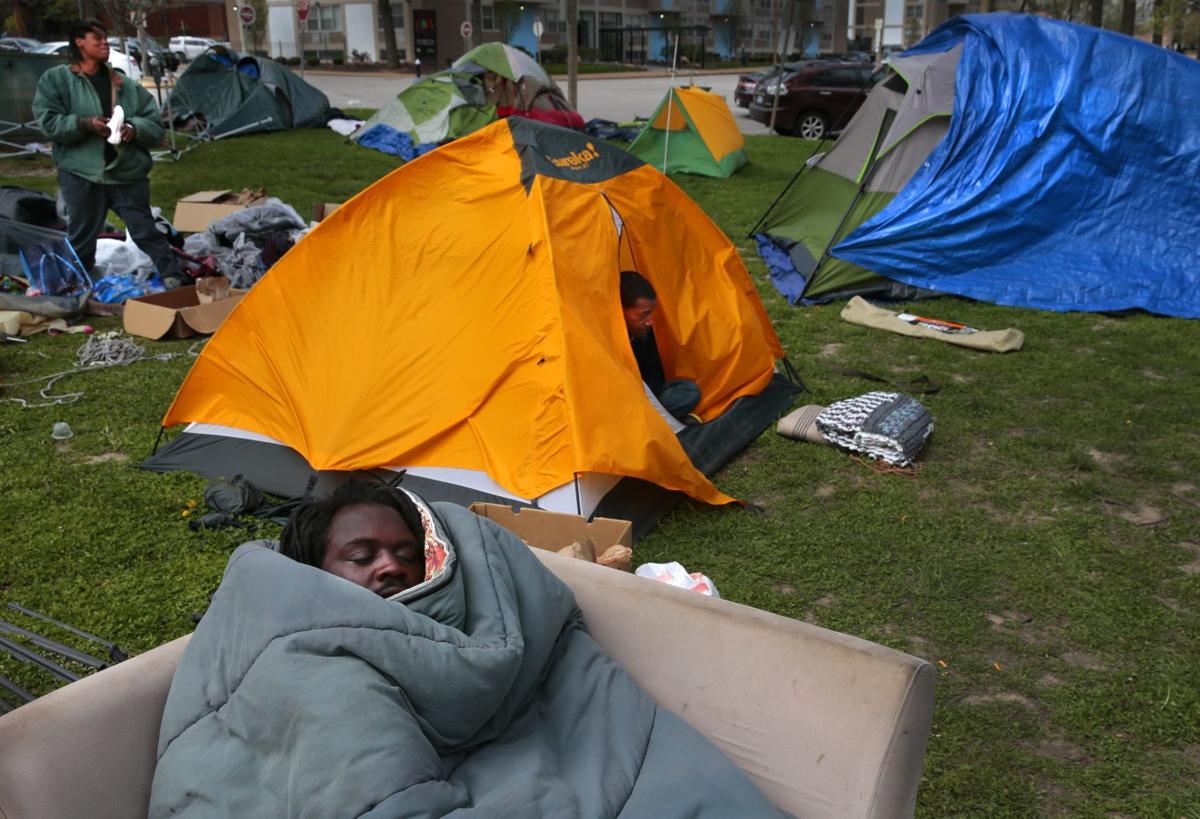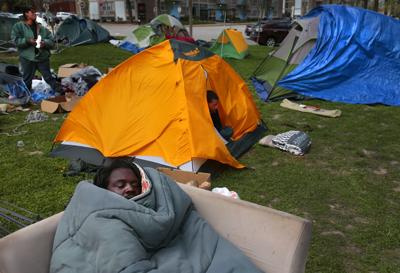For several months, Matthew Maufas was the epitome of a Three Dog Night song.
He was the loneliest number.
There he was, throughout February, March and April, as the only person in the cityŌĆÖs medium security institution known as the who was being held on a simple ordinance violation.
He was not one of the ŌĆ£dangerous felonsŌĆØ that Mayor Lyda Krewson or Public Safety Director Jimmie Edwards refer to when they explain why the long-troubled facility canŌĆÖt be closed, despite its dwindling population. He wasnŌĆÖt even in the jail on a misdemeanor.
He was there because he was homeless.
Maufas has been that way for about four years. Like many people who live on the streets, he prefers to sleep near one of the steam vents found near downtown buildings that on a cold winter night provide at least some heat. His favorite spot was a vent near the Tums building on South Broadway. Sometimes he slept near the Enterprise Center.
People are also reading…
After being arrested a couple of times, the city issued a neighborhood order of protection, defining an area where he wasnŌĆÖt allowed. Last year, he was rousted after sleeping in that same neighborhood again. He went before a judge in municipal court and pleaded guilty in May to trespassing and violating the order of protection. Maufas was sentenced to a year of probation.
But he was still unhoused. Several times in the past year, he was picked up by police.
In February, his probation was revoked and he was sent to the workhouse for 120 days.
It was right before COVID-19 hit the region, and city officials worked to reduce the local jail population. But Maufas stayed. In the last several months, I checked the inmate population regularly, noting it had dropped far below the number necessary to move all detainees into the City Justice Center, as the Close the Workhouse movement had been urging for years.
Attorney Maureen Hanlon of the nonprofit noticed the same thing.
Why was there one person still in the workhouse who is there on a simple ordinance violation, she wondered? So she investigated and found out about Maufas. What she found next was even more alarming.
He had been sentenced to jail without being represented by an attorney at any stage of the process.
ŌĆ£An actual jail sentence for a municipal charge is extremely rare,ŌĆØ Hanlon says. ŌĆ£He wasnŌĆÖt represented at any point.ŌĆØ
Last week, Hanlon filed a motion seeking to withdraw MaufasŌĆÖ previous guilty plea on the grounds that his sentence violated his Sixth Amendment right to counsel. The judge agreed. Maufas was released.
I talked to him on Thursday, when he was at a shelter run by Horizon North Housing.
ŌĆ£I feel wonderful,ŌĆØ Maufas said, about getting out of jail. His mother was visiting as we talked and they were getting ready to head to the store to get some food and supplies.
Maufas suffers from schizoaffective disorder. Like many unhoused people, he struggles to find his way into the various shelters and programs that might help him find his way off the streets. While in the workhouse, he said, other detainees were amazed he was behind bars.
ŌĆ£A lot of people didnŌĆÖt believe me that I was there for trespassing,ŌĆØ Maufas says. ŌĆ£They straight locked me up for being homeless.ŌĆØ
In a city that has failed to adequately deal with its unhoused population for decades, MaufasŌĆÖ plight is an example of whatŌĆÖs wrong with the system. There are never enough beds in ├█č┐┤½├Į for all the people lacking shelter, so what can and should the city do to try to help those left to fend for themselves? ItŌĆÖs the same question playing out in two tent encampments on Market Street this week.
KrewsonŌĆÖs administration wants the people there cleared out. But the nonprofits who provide services to the homeless in ├█č┐┤½├Į, nearly all of which are part of the , say closing those encampments is exactly the wrong action at the wrong time. On Friday, ArchCity Defenders went to court to try to block the cityŌĆÖs planned clearing of the parks across from City Hall. A federal judge the next day ruled against ArchCity.
Hanlon fears some of the people living there could end up facing the same fate Maufas did.
ŌĆ£Connecting people in his situation with services is so difficult, and criminalizing them is so easy,ŌĆØ Hanlon says. ŌĆ£We have the money to put him in jail, but not to find him a place to live.ŌĆØ






















